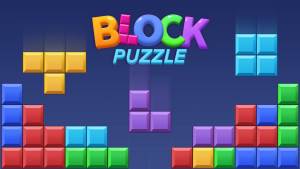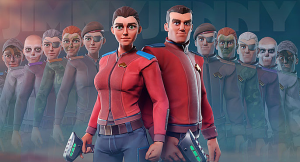Level Up Your Game: 5 Tips for Game Developers
Dreaming of creating the next epic game? Whether you’re a seasoned developer or just starting your coding journey, these tips will equip you to make your mark in the exciting world of game development:
1. Start Strong with a Rock-Solid Design Document (DDD): Before a single line of code is written, take the time to craft a comprehensive DDD. This document outlines your game’s core concept, mechanics, story (if applicable), target audience, and technical specifications. Here’s a breakdown for a detailed DDD:
- Concept & Genre: Clearly define your game’s genre (platformer, RPG, strategy, etc.) and its core gameplay loop.
- Mechanics: Detail the rules that govern player interaction with the game world. How does movement work? What are the combat mechanics? How will players progress?
- Story & Characters (if applicable): Flesh out your narrative (if your game has one) and develop compelling characters.
- Target Audience: Identify your ideal player – casual gamers, hardcore enthusiasts, a specific age group, etc.
- Technical Specifications: Outline the programming languages, libraries, frameworks, and target platforms (PC, mobile, console) you’ll be using.
A well-crafted DDD serves as a roadmap for your development process, keeping you focused and ensuring everyone on your team (if you have one) is on the same page.
2. Prototype Early, Prototype Often – Embrace the Power of Minimum Viable Products (MVPs): Don’t get bogged down building a massive game right away. Instead, create Minimum Viable Products (MVPs) – stripped-down, functional versions of your core gameplay mechanics. These prototypes allow you to:
- Test Core Gameplay Loops: See if your core mechanics are actually fun and engaging.
- Get Early Player Feedback: Share your MVPs with other developers and potential players to gather valuable feedback. Use this feedback to iterate on your design and identify areas for improvement.
- Validate Assumptions: Test if your initial design assumptions hold true in an actual playable format.
By creating multiple MVPs throughout development, you can refine your game much faster and avoid wasting time on features that might not resonate with players.
3. Embrace the Power of Version Control Systems (VCS) – Keep Your Code Organized: As your project grows, code management becomes crucial. Utilize a Version Control System (VCS) like Git to track changes, collaborate with teammates, and revert to previous versions if needed. VCS allows you to:
- Track Changes: See how your code has evolved over time and identify who made specific changes.
- Collaboration: Multiple developers can work on the same codebase simultaneously without conflicts.
- Disaster Recovery: If you introduce a bug, you can easily revert to a stable version of your code.
Mastering a VCS is an essential skill for any game developer, especially if you’re working with a team.
4. Optimize Your Workflow – Embrace Automation and Time Management: Game development can be a time-consuming endeavor. Here are some ways to streamline your workflow:
- Automate Repetitive Tasks: Use scripting tools or plugins to automate repetitive tasks like building your game or running tests. This frees up your time for more creative and strategic work.
- Prioritize Effectively: Break down large tasks into smaller, manageable steps. Use project management tools to track your progress and stay on schedule.
- Embrace Breaks: Taking short breaks throughout the day can help you stay focused and avoid burnout.
By optimizing your workflow, you’ll be able to work more efficiently and achieve your development goals faster.
5. Learn From the Masters – Deconstruct Your Favorite Games: Immerse yourself in the games you love, but don’t just play them – analyze them! Break down the design choices, mechanics, and user experience elements. Here are some ways to learn from the best:
- Play with the Intent to Learn: As you play, actively think about what makes the game fun and engaging. How does the game guide players? How does it create a sense of challenge and reward?
- Study GDC Talks and Developer Blogs: Game Developers Conference (GDC) talks and developer blogs offer valuable insights into the design and development process of successful games.
- Experiment with Different Genres: Play games from various genres to broaden your design knowledge and gain inspiration for your own projects.
By actively learning from successful games, you can incorporate best practices and innovative ideas into your own development endeavors










